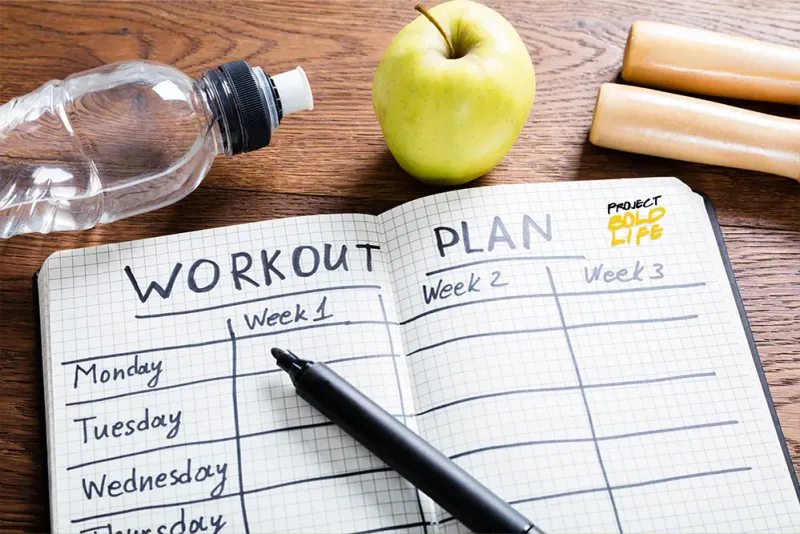When it comes to getting fit and staying healthy, consistency is key—but that doesn’t mean you need to hit the gym seven days a week. In fact, pushing yourself to work out every single day may do more harm than good.
While it’s admirable to stay committed to your goals, there’s a fine line between dedication and overkill. Rest days are just as important as active ones. They allow your body and mind to recover, helping you achieve better results in the long run.
Below are seven reasons why taking a break can actually make your fitness journey more effective—and more enjoyable.
1. Risk of Overtraining Syndrome
Overtraining syndrome is a real concern when rest is cast aside. Constantly pushing your body without breaks can deplete your energy reserves and morale. Symptoms such as fatigue and irritability become common companions. As your performance plummets, so does your motivation.
Ignoring these signs can lead to chronic issues, including insomnia. Your body needs time to recover and rebuild, but without rest, workouts become counterproductive.
The enthusiasm to achieve more can inadvertently set you back. Being mindful of your body’s limits is crucial. Regular rest is not a weakness, but a necessary component of a healthy fitness routine.
2. Increased Risk of Injury
Injuries can sneak up on those who don’t listen to their bodies. Daily workouts without rest stress your joints and muscles. Minor strains, if ignored, can escalate into serious injuries like tendonitis.
Rest is not just recommended; it’s essential for recovery. Giving your body time to heal ensures your long-term fitness goals aren’t derailed by preventable injuries.
Prioritizing rest leads to sustainable progress and reduces the risk of setbacks. Understanding when to push and when to step back can make all the difference in your fitness journey. Recovery is as important as the workout itself.
3. Muscles Grow When You Rest
Contrary to popular belief, muscles actually grow during rest. Training breaks down muscle fibers, and it’s during rest that they rebuild stronger. Missing out on rest days can limit your progress.
Your body needs time to replenish energy stores and repair muscle tissues. Overtraining without rest results in diminished returns as muscles break down faster than they rebuild.
Embrace rest days as part of your regimen for optimal growth and recovery. Rest is not a sign of laziness but a strategic part of effective training. Balance is key to maximizing muscle gain and performance.
4. Mental Burnout
Burnout isn’t just physical; it hits the mind too. Daily workouts can lead to mental fatigue, causing exercise to become a chore rather than a joy. Consistent pressure to maintain a strict routine can breed resentment.
This mental strain makes it difficult to sustain a long-term commitment to fitness. Fostering a positive relationship with exercise is pivotal, and that includes knowing when to take a break.
Finding joy in movement should be a priority, with rest days enjoying equal importance. Allowing yourself space to breathe mentally revitalizes your spirit and connection to fitness.
5. Weakened Immune System
Did you know excessive exercise can weaken your immune system? Skipping rest days might leave you more vulnerable to illnesses, as your body’s defense mechanisms are compromised.
The key to a strong immune response lies in moderation. Balanced workouts bolster immunity, but overexertion does the opposite. Your body needs recuperation to fend off potential health threats.
Incorporating rest into your routine ensures you stay fit and healthy. Protect your well-being by giving your immune system the recovery it needs. Remember, fitness is about overall health, not just strength or endurance.
6. Neglecting Other Important Activities
Life is more than just exercise. Spending each day at the gym can mean sacrificing social engagements or hobbies. Overcommitting to workouts might unbalance your lifestyle.
Fitness is a component of health, but so are relationships and personal interests. Neglecting these areas can lead to dissatisfaction.
Finding a balance between working out and other activities enriches your life. Ensuring time for relaxation and socializing promotes a well-rounded, fulfilling life. Remember, balance is key to longevity in any fitness journey.
7. You Don’t Need It to Stay Fit
Science supports that fewer workout days can be more effective. Engaging in 3–5 well-structured sessions each week optimizes fitness gains. Rest and active recovery days are crucial.
Training every day can lead to burnout, while a smart schedule enhances results and enjoyment. Embracing rest days allows the body to recuperate, ensuring sustained progress.
Fitness isn’t about pushing every day, but making each session count with proper rest in between. Quality outweighs quantity, paving the way for a healthier lifestyle. Make fitness a joyful part of life, not a daily grind.








Comments
Loading…